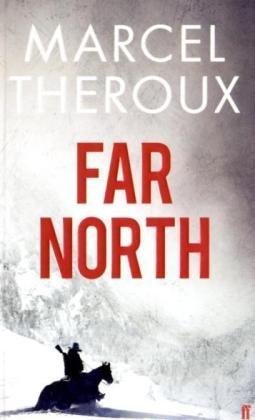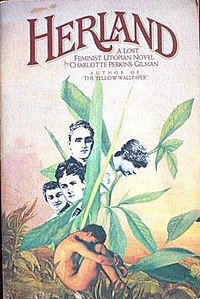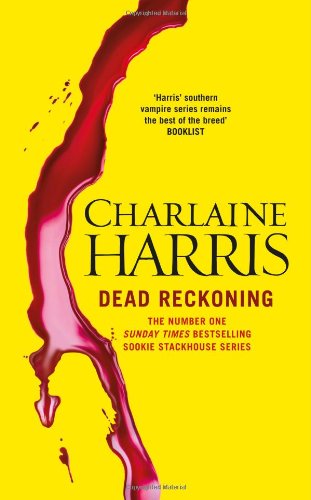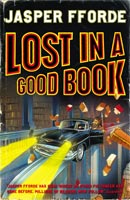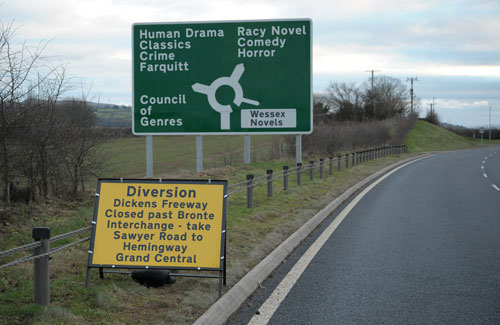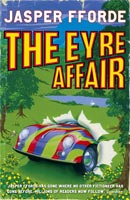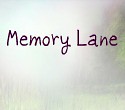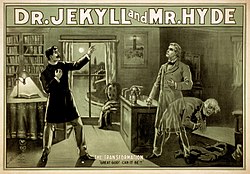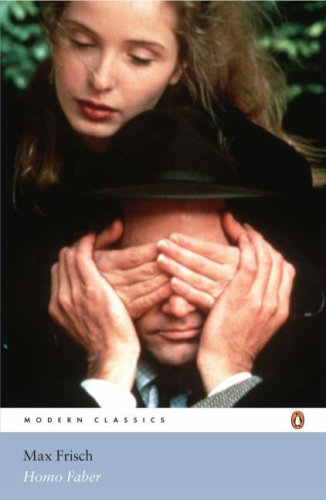But I just didn't love this. Sure, Under the Dome was wordy, and underwhelming (it felt all too same-y to me, like nothing new had been said), but I rollicked through it. King's opus about the Kennedy assassination (now with more time travel!! [TM]) mostly just dragged.
 Some bits, I loved. But they were few and far between in a book that should have been a novella at most. And this is from a woman who scoffs at the usual "King needs an editor" comments. I love the wordy details of King's worlds. I love the minute details, the small, almost private insights. The complicated tie-ins. 11/22/93 needed a good edit. Down to a quick 250 page "novella" at least.
Some bits, I loved. But they were few and far between in a book that should have been a novella at most. And this is from a woman who scoffs at the usual "King needs an editor" comments. I love the wordy details of King's worlds. I love the minute details, the small, almost private insights. The complicated tie-ins. 11/22/93 needed a good edit. Down to a quick 250 page "novella" at least.So, what' it all about? In a spoiler-free way, the plot goes thus: Jake Epping, a mild-mannered teacher from middle America, is introduced to a "time bubble" that allows a traveller to go back to an exact date and time in 1958. And to step forward again, exactly 2 minutes after they left in the present time. Trick is, every time you travel, it's a "reset" - back to the same time and place, as if you'd never been there before.
So, as you can tell from the novel's title [I can't resist pointing out that in Australia, the title would be 22/11/63], the novel centres around Jake's efforts to prevent the Kennedy assassination in Dallas, thus *saving America*, and so forth.
Okay, great idea! But it was a long, long, long way to get there.
**Major SPOILERS follow**
There are three main arcs to the story: the first is an "I'm going to kill a murderer to prevent them doing the deed and killing their family," story. This serves as our set up for being able to do the same to Lee Harvey Oswald when the time comes. This part of the book was a gripping tale, and has some loose tie-ins to Derry and it's previous characters. It felt like a traditional King "horror that lies within us" story, and as such, was probably the most successful part of the book, for me.
The second main arc is Jake's long journey to Dallas, via teaching in a small-town and falling in love with a woman with a crazy ex, while keeping very close tabs on Oswald in minute (and I mean minute) detail. Parts of this arc just sing, the small town life, the love story - this is one of the things I love about King: he sees the nuances of human action and relationships, and manages to communicate them to us.
Parts of this section just drag, though, and in some of the tiny details about Oswald's life I had to stop myself from skimming [sacrilege!! And I LOVE Stephen King!]. I think this dragging feeling might be due to the effort to make the details as accurate and well researched as possible. And that the whole section should have been shortened to about 50 pages, instead of the hundreds that it ran to. It didn't make for gripping story-telling. I did learn more about Oswald and his life and motivations, but parts felt more like a dry historical tome than a novel.
The third (and briefest) arc is the return to current times to see what happened as a result of Jake/George's meddling. This was under-done. There was an unconvincing and convenient conversation about time travel with an observer-type, that frankly if it had happened sensibly at the first trip Jake took would have prevented the whole novel from happening. There was an easy-out "bad" society description (*look, society is bad and kids are mean to people, and also...pollution!*), and some of the decisions taken on the world stage if Kennedy had lived felt false, and were skipped over as a kind of "time travel causes bad stuff, just coz it does! effect. Disappointing. After all the details and effort of telling a time-alteration story, why not dwell more convincingly on what might happen next? The convenience of the "don't meddle with time, it's bad, okay?" plot-line was shallow and disappointing. I wanted a more nuanced finish: what would really have happened?
I would far rather King has wrestled with the issue of traveling back to save the woman he loved, at the expense of everything else, than get out of time-travel jail free with a "whoops, causes harmonic issues, thing turn out badly," woo-woo ending.
Overall, this is one of the only King books I've been disappointed in. Read it if you're a King fan, or a Kennedy buff, otherwise this might be one to skip. By the end, I was too frustrated and full of plot critique to enjoy the moderately decent end.
6/10.
Read on Kindle for iPad.







